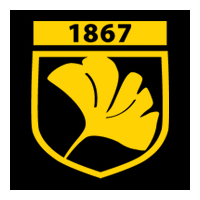What do they do?
Feed, water, and examine pets and other nonfarm animals for signs of illness, disease, or injury in laboratories and animal hospitals and clinics. Clean and disinfect cages and work areas, and sterilize laboratory and surgical equipment. May provide routine postoperative care, administer medication orally or topically, or prepare samples for laboratory examination under the supervision of veterinary or laboratory animal technologists or technicians, veterinarians, or scientists.
Also known as:
Animal Care Provider, Animal Caregiver, Avian Keeper, Certified Veterinary Assistant, Emergency Veterinary Assistant, Inpatient Technician Assistant, Kennel Vet Assistant (Kennel Veterinary Assistant), Research Animal Attendant, Small Animal Caretaker, Veterinarian Assistant (Vet Assistant)
-
5.5%
Change
Ranks #38 in job growth rate1,030Job Openings
Ranks #8 in net job growth
Looking for colleges that offer a specific major? Use the College Match Tool to find your best-matched schools and discover your estimated Net Price!
- Some college, no degree (30%)
- Bachelor's degree (26%)
- High school diploma equivalent (20%)
- Associate's degree (16%)
- Less than high school diploma (4%)
- Master's degree (2%)
- Doctorate or Professional Degree (1%)
Most Popular Majors that prepare Veterinary Assistants and Laboratory Animal Caretakers
-
#1
-
Degrees Granted
1,379
-
Female Students
1,211
-
Male Students
168
-
Median Starting Salary
$47,533
-
-
#2
-
Degrees Granted
665
-
Female Students
590
-
Male Students
75
-
Median Starting Salary
$44,300
-
-
#3
-
Degrees Granted
560
-
Female Students
470
-
Male Students
90
-
Median Starting Salary
$40,900
-
-
#4
-
Degrees Granted
109
-
Female Students
74
-
Male Students
35
-
Median Starting Salary
$55,200
-
-
#5
-
Degrees Granted
87
-
Female Students
56
-
Male Students
31
-
Median Starting Salary
$55,200
-
People in this career often know a lot about:
- Customer and Personal Service - Knowledge of principles and processes for providing customer and personal services. This includes customer needs assessment, meeting quality standards for services, and evaluation of customer satisfaction.
- English Language - Knowledge of the structure and content of the English language including the meaning and spelling of words, rules of composition, and grammar.
- Biology - Knowledge of plant and animal organisms, their tissues, cells, functions, interdependencies, and interactions with each other and the environment.
- Administrative - Knowledge of administrative and office procedures and systems such as word processing, managing files and records, stenography and transcription, designing forms, and workplace terminology.
- Medicine and Dentistry - Knowledge of the information and techniques needed to diagnose and treat human injuries, diseases, and deformities. This includes symptoms, treatment alternatives, drug properties and interactions, and preventive health-care measures.
People in this career often do these activities:
- Hold patients to ensure proper positioning or safety.
- Monitor patients to detect health problems.
- Monitor patient progress or responses to treatments.
- Give medications or immunizations.
- Control prescription refills or authorizations.
- Clean patient rooms or patient treatment rooms.
- Assess physical conditions of patients to aid in diagnosis or treatment.
- Conduct diagnostic tests to determine patient health.
- Assist practitioners to perform medical procedures.
- Collect biological specimens from patients.
- Schedule patient procedures or appointments.
- Perform clerical work in medical settings.
- Clean medical equipment.
- Maintain medical equipment or instruments.
- Record vital statistics or other health information.
- Administer basic health care or medical treatments.
- Prepare medical instruments or equipment for use.
- Teach medical procedures or medical equipment use to patients.
- Prepare patient treatment areas for use.
- Stock medical or patient care supplies.
- Feed patients.
- Dispose of biomedical waste in accordance with standards.
- Prepare medical reports or documents.
- Assist patients with daily activities.
- Process medical billing information.
- Inventory medical supplies or equipment.
- Order medical supplies or equipment.
- Sell products or services.
This page includes data from:

 Occupation statistics: USDOL U.S. Bureau of Labor Statistics Occupational Employment Statistics
Occupation statistics: USDOL U.S. Bureau of Labor Statistics Occupational Employment Statistics
 Videos: CareerOneStop, USDOL/ETA and the Minnesota Department of Employment & Economic Development
Videos: CareerOneStop, USDOL/ETA and the Minnesota Department of Employment & Economic Development












